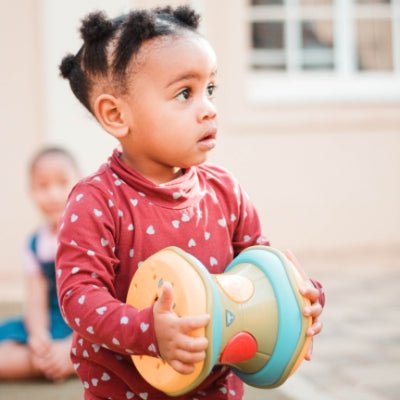Tips for Parenting Through Returning to School and Work in Person

As we transition back to in-person school and work, it’s safe to say that all of us are feeling the effects of change. Maybe you’ve been able to work from home since the baby was born and are now facing the return to the office. Maybe it’s a first trip to daycare or preschool for your little one. Maybe your older kids are headed back to school with fuzzy memories of how it used to be and more than a little uncertainty about what it will be now.
Whether it’s social anxiety as we readjust to spending the day with a group of peers, lingering anxiety over COVID-19 and safety, or simply exhaustion from the unfamiliar go-go-go of a new routine, it’s pretty likely that you and your little ones are wrestling with some raw emotions, disrupted sleep, or anxious thoughts. And of course you are – these changes are BIG, new, and just a whole lot in general.
Here at dadada, one of our foundational principles is supporting you as you celebrate every moment of baby and childhood. So, we put together a short list of tips to help you and your family find connection, rest, and yes, even celebration, as you adjust to going back to work and school.
MAXIMIZE TOGETHER TIME.
One of the great benefits of returning to school and work is a clearer boundary between family time and work time. Take advantage of this new clarity by practicing full presence at home. Encourage all your family members to set aside their devices. Ask questions about the day, share snacks, or if everyone is REALLY tired, just curl up for some quality snuggle time. Make sure that the evenings, when you all come home, become a space for uninterrupted off-the-clock time to rest, play, and be with each other. Your kids will appreciate the connection, and you’ll find yourself learning a healthy rhythm of unwinding along with them.
In today’s world, it can be easy to forget that you don’t owe anyone your 24/7 availability. You DESERVE time that’s reserved just for family, and time that’s reserved just for YOU.
KEEP AN EYE OUT FOR ACHES.
When children don’t have language for their anxious thoughts or feelings, they might communicate them in the form of aches – headaches and tummy aches are the most common. Frequent aches and pains might be less related to physical illness and more a symptom of your little one’s body attempting to adjust to a whole lot of change. And don’t forget about signs of stress in your own body – increased heart rate, body aches, and shortness of breath can all be caused by the stress of change. Your readjustment stress is just as real and just as important as what your kids are feeling.
When you notice these symptoms in yourself or your kids, respond with gentle exercise (an easy walk outside might be a good idea), stretching, healthy food, lots of water, and time away from screens to unplug and rest. Obviously, if symptoms persist, see your doctor – but often, a little fresh air, some good deep breaths, and time away from stimulation will help things get back to normal.
UNDER-PLAN YOUR WEEKENDS.
Expect EVERYONE to be exhausted for at least the first month or so after returning to work and school. Avoid the trap of trying to hold on to summer by squeezing in weekend activities. We’re all adjusting to what it’s like to be out in the world again – go gently. For now, fill your weekends with a whole lot of flexible downtime – more naps and fewer theme parks, at least until things start to feel normal again.
NORMALIZE EMOTIONAL CHECK-INS
Even if your kids are still very small, now is the perfect time to get in the habit of family emotional check-ins. Designate a time of day to check in with your emotions together. How is your body feeling? Your brain? Your heart? Are you worried about anything? What brings you joy?
Sometimes, just knowing they’ll have a regular opportunity to talk about how they feel can help kids identify and manage big feelings. And knowing that you’re a safe place to share all their excitement and concern about going back to school can help them feel secure, loved, and able to handle big change. And sharing your emotions with them can help normalize what they’re experiencing. After all, we’re all in this together.
We’re sending you so much hope for joy, productivity, and lots of learning as you and your family adjust to the “new normal.” We’re happy to help your home feel like a respite, every day, to return to after a long day back out on the job or in the classroom – a place where everyone feels safe, calm, and loved.
